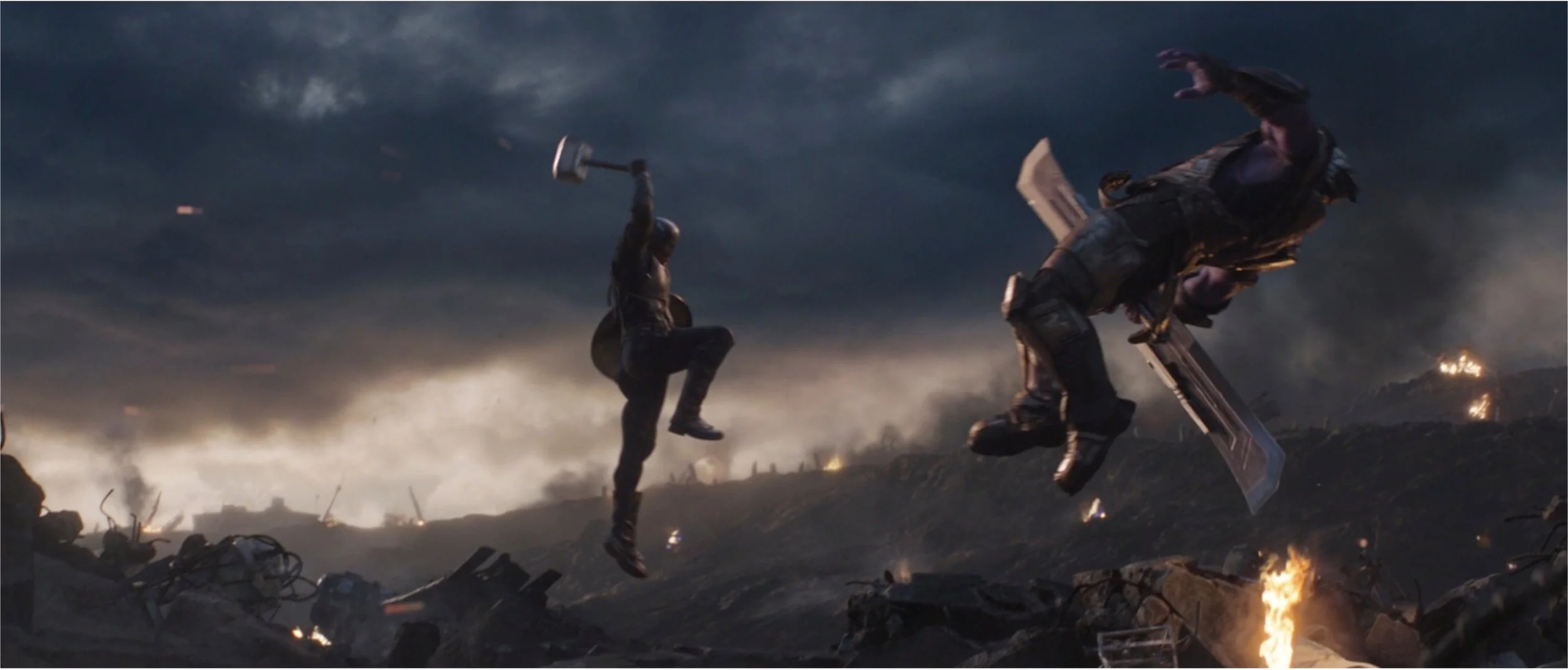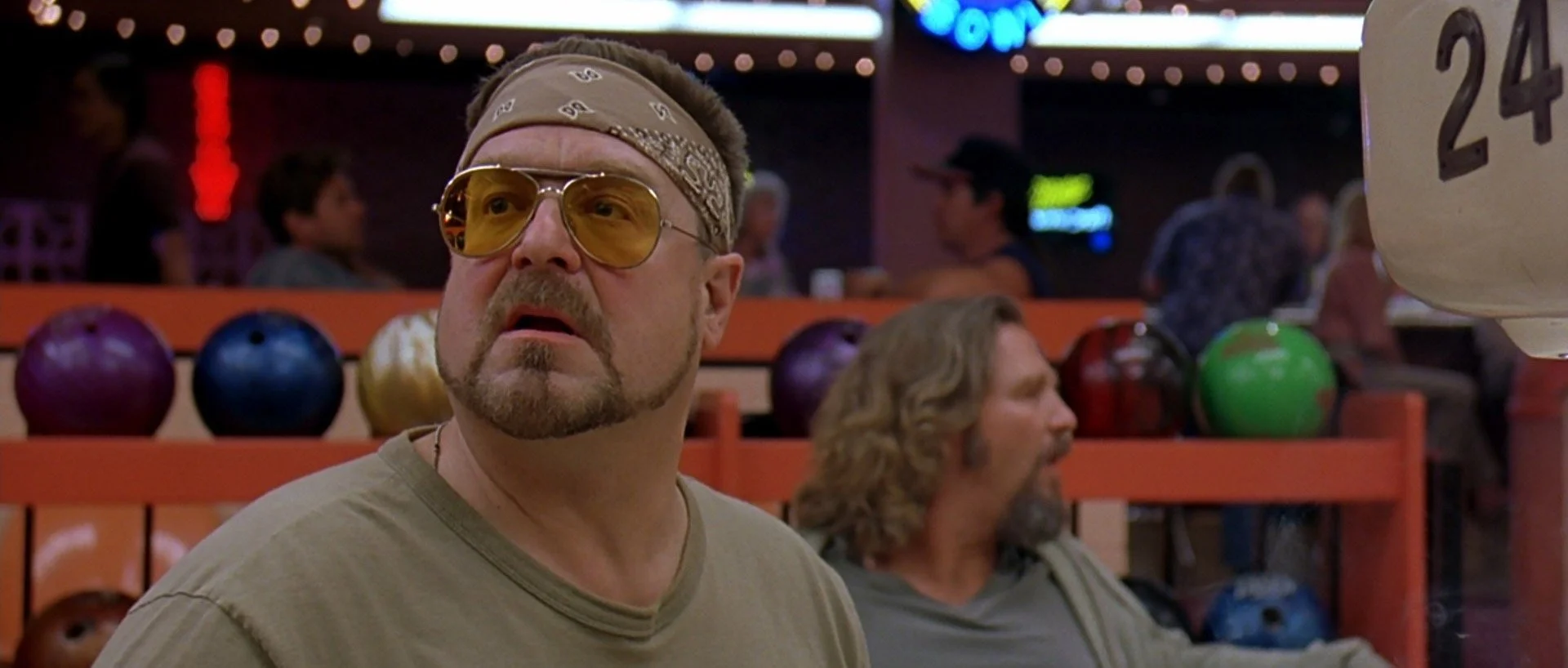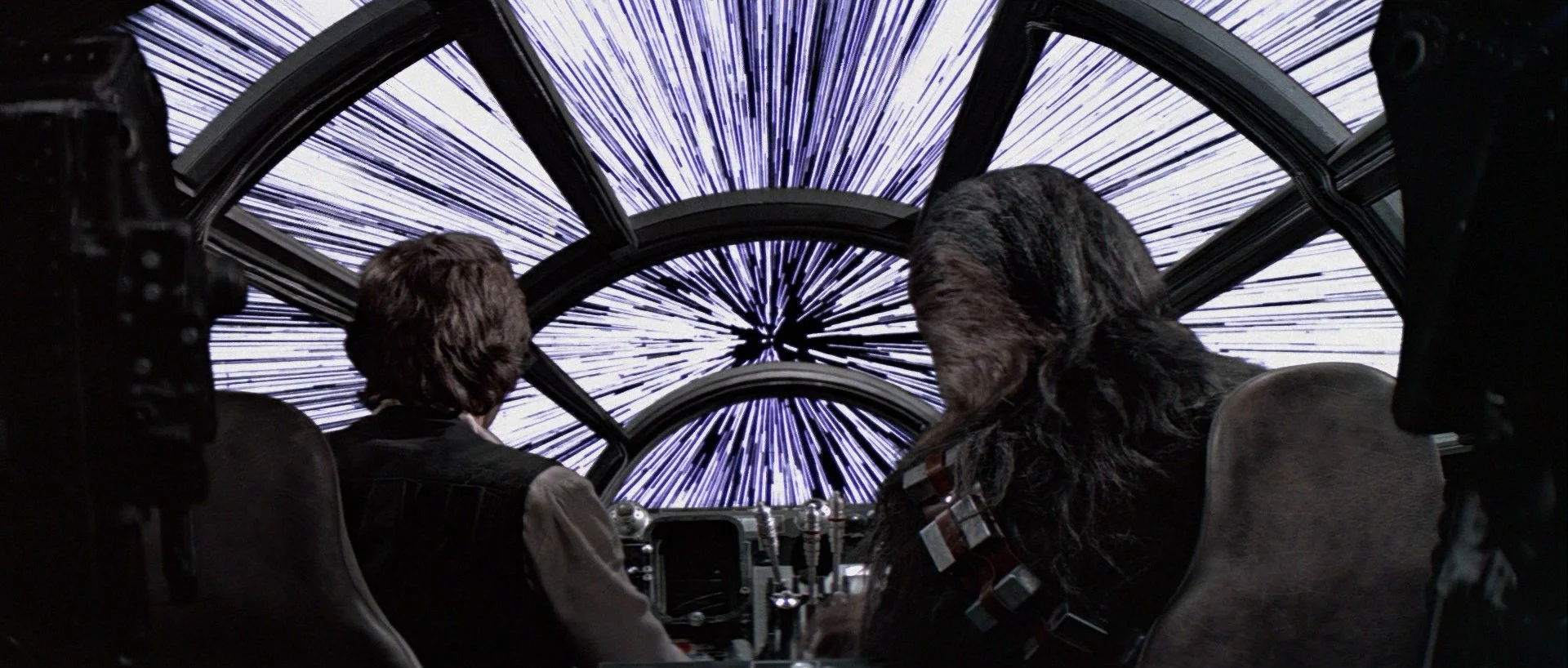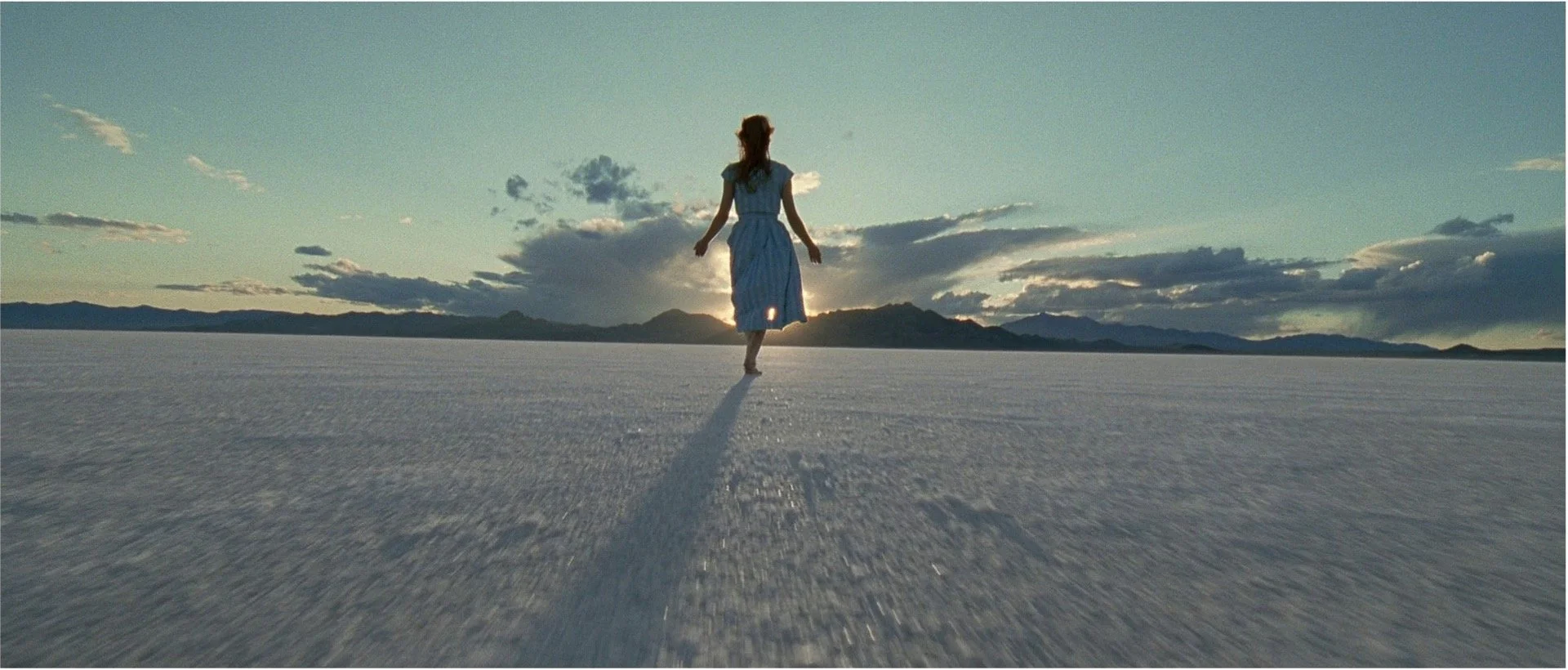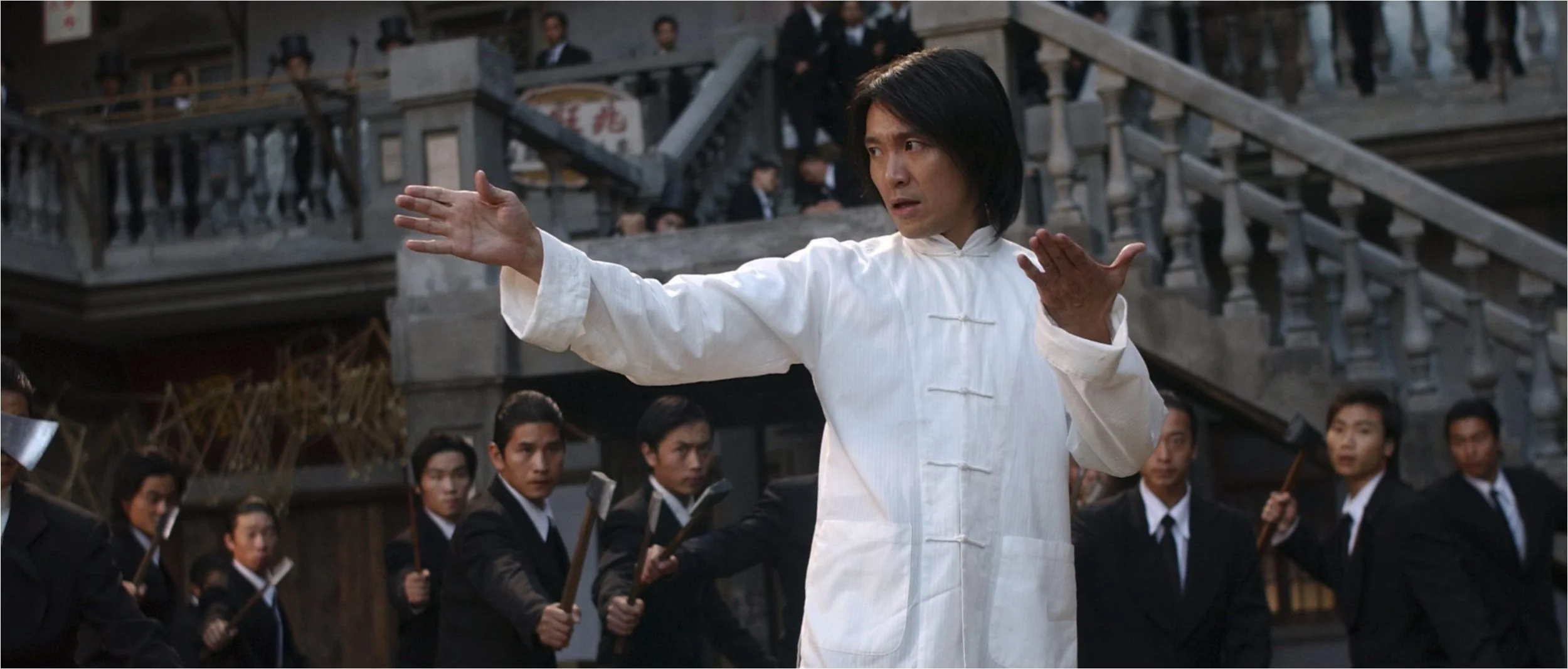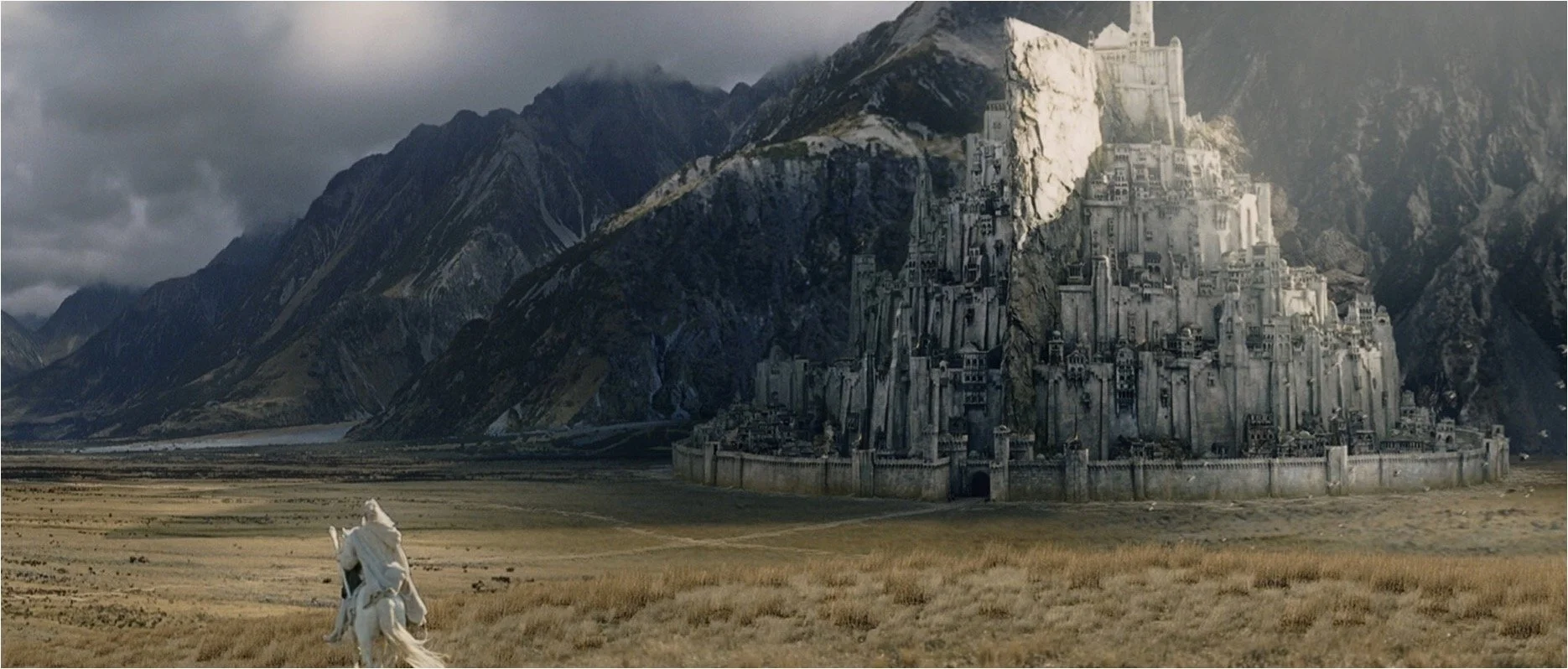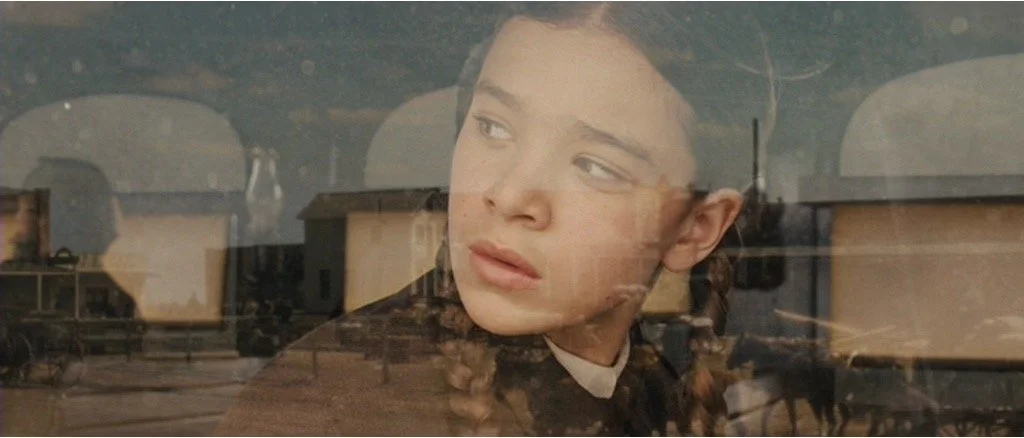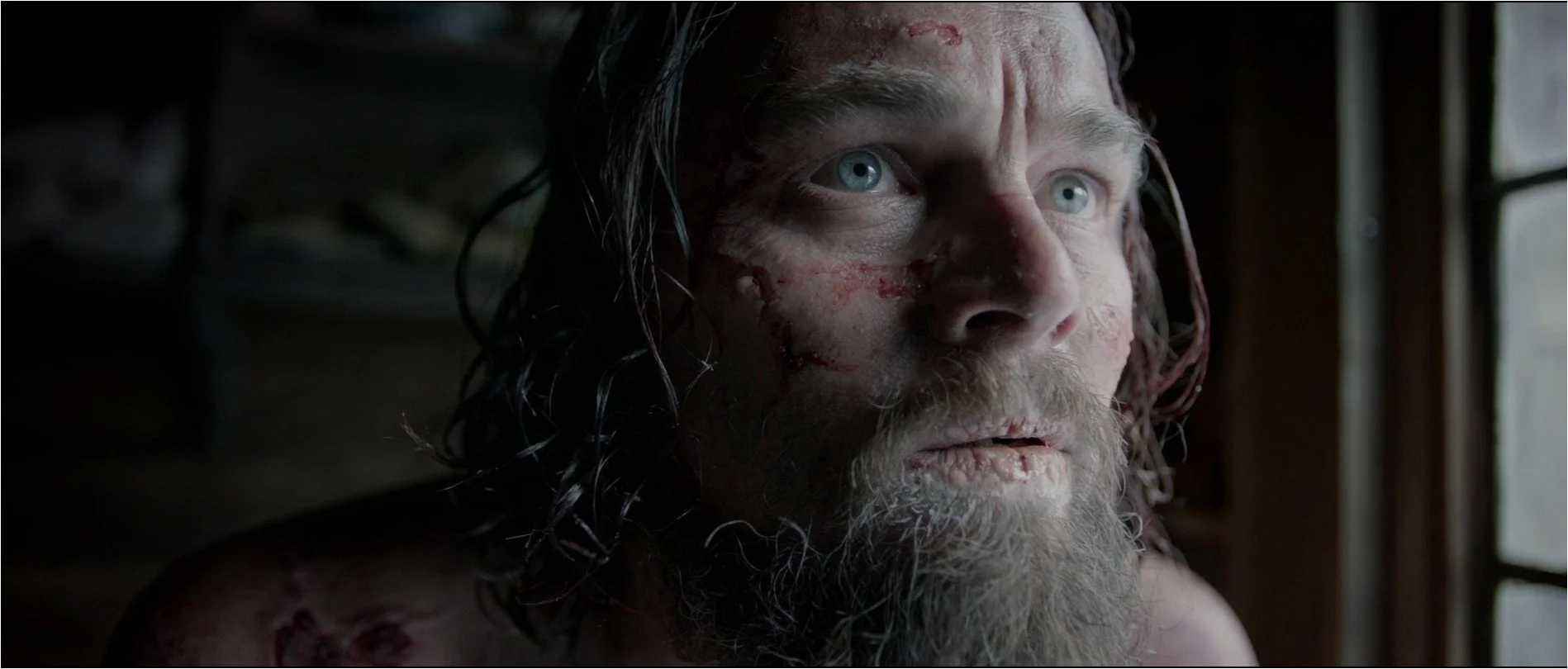30 Incredible Films You Might’ve Missed (Plus a Few Classics)
A bunch of movies definitely worth streaming during the middle of day now that you work from home. We won’t tell if you don’t.
At some point last year were you seated in a theater watching Moonfall? Did you quietly root for Matt Damon, Scarlett Johansson, and the guy who played Lloyd on Wings to outsmart the safety inspector in We Bought a Zoo? Do you not watch movies because you have a hard time paying attention to anything for 90 minutes? (Also, are you struggling at work? Never mind …)
If you answered yes to any of the above, feel free to close this browser window and flip back over to The Scorpion King 2 on TBS. We see you dozing off … it’s okay. We’re not judging. Just don’t forget your dinner is still in the microwave.
For everyone else, here are 30 of the best movies we’ve seen that you should see too.
Che (2008)
Elton, Aretha, Elvis, Freddie Mercury, Judy Garland, Fred Rogers … so many movies about entertainers. Who’s property do we have to nationalize to get a biopic on a Marxist guerrilla? Nearly five hours long, Che would be streamed as a limited series now but that wasn’t a thing in 2008, so Steven Soderbergh’s story of the Cuban revolutionary is a two-part film. The first follows Guevara from his 1955 intro to the Castro brothers in Mexico City to Havana’s overthrow four years later. The second charts Che’s failed Bolivian insurgency, ending with his execution in 1967. Benicio Del Toro at his best.
Inside Out (2015)
It’s about adolescent loneliness and depression. It kills off a child’s imaginary friend in the final act. You know this is an animated kids movie, right? But not only does it work, it’s the most original, imaginative, funny, and touching Pixar movie in a catalogue full of them. Amy Poehler reprises her role as neurotic optimist Leslie Knope from Parks and Recreation, except this time her name is Joy and she lives inside a little girl’s head. That explains a lot. Before you ask — yes, we cried when Bing Bong died (Take her to the moon for me …) but we’ll deny it if you tell our friends.
The Power of the Dog (2021)
Director Jane Campion reimagines Donald Trump as a 1920s-era rancher named Phil. And boy, is Phil mean. Like, He Who Must Not Be Named mean. Facebook comment mean. Alex Jones mass shooting conspiracy theory mean. That lady who called the cops on the Black guy watching birds in Central Park mean. There’s a reason and we won’t spoil it, other than to say it comes full circle with a final act that’s shamefully cruel, yet strangely compassionate.
Zero Dark Thirty (2012)
It’s easy to imagine Zero Dark Thirty as a shitty blockbuster starring The Rock as the Navy SEAL who takes down Osama Bin Laden. Instead, director Kathryn Bigelow delivers a nuanced account of the winding, decade-long pursuit of Bin Laden from the point of view of the CIA. Opening with actual recordings of 911 calls made from the World Trade Center on 9/11, Zero Dark Thirty chronicles the years of intelligence gathering, spycraft, and Washington decision-making that concluded with the early-morning raid on Bin Laden’s Abbottabad compound in May 2011. That scene dazzles when it arrives, but the film’s real achievement is the appreciation you’ll have for how we got there.
Pulp Fiction (1994)
What’s your favorite part in Pulp Fiction? Travolta slamming an adrenaline shot into Uma Thurman’s heart? The apartment scene? (English, motherfucker! … Do you speak it?!) Ezekiel 25:17? Christopher Walken’s watch monologue? We’re going with the dance scene in Jackrabbit Slim’s but there’s a dozen choices and no wrong answer, which is why this second Quentin Tarantino movie is a violent, irreverent, singular masterpiece. By the way, if you ever hear Comanche by The Revels playing in a pawn shop, go for the katana.
Avengers: Infinity War (2018) and Endgame (2019)
It’s not how you start, it’s how you finish. Exhibit one: Game of Thrones. Exhibit two: The Marvel Cinematic Universe, which began serving bland superhero fare during George W. Bush’s second term but hit its stride over the next 10 years, 20-plus movies, and 50 hours of cumulative screen time. Directors Anthony and Joe Russo stick the landing in the two-part finale, delivering an improbably entertaining, funny, and satisfying conclusion that exceeds all expectations while granting agency to millions of overweight fans to attend Comic-Con dressed as Thor.
Gomorrah (2008)
Gomorrah is a mob movie, but not the kind you’re used to. This adaptation of Roberto Saviano’s exposé on Naples organized crime (now also a TV series) peels away the romanticism to reveal the essence of mafia: Exploitation, corruption, violence. A 13-year-old boy joins the crime syndicate as a drug runner in the crumbling housing projects where he lives. For his initiation, he’s draped in a shabby bulletproof vest and shot in the chest. No fabulous casinos, fancy mobster cars, or sentimental flashbacks to beautiful Sicilian countrysides here. Just death and decay.
Dune (2021)
You may have heard how boldly imaginative the story of Dune is: About 20,000 years in the future, rich white people fight each other for control of priceless natural resources that belong to a subjugated native population. Where do they come up with this crazy shit? (Oh … there’s also the Bene Gesserit — a super-race of magical women — and the Kwisatz Haderach, a prophesied supreme being who can see the beginning and end of time that Bene Gesserit members have been attempting to conceive through selective breeding for thousands of years.) Denis Villeneuve’s adaptation is both breathtaking and faithful to Frank Herbert’s timeless novel, which influenced the 1990 Kevin Bacon classic Tremors as well as lesser known works like Star Wars and Game of Thrones.
Bridesmaids (2011)
“Look away … look away!” shouts Melissa McCarthy at her friend, also suffering food poisoning, as she shits in the sink at a high-end bridal boutique. You’ve seen this movie before with boys (Superbad, Good Boys), men (The Hangover, Old School, etc.), and even old men (Last Vegas). Now it’s the ladies’ turn to ruin a wedding, drop a deuce in the middle of the street, and molest air marshals (Feel that steam heat? That’s from my undercarriage …). It’s just as good or better with McCarthy, Kristin Wiig, Maya Rudolph, Rose Byrne and company.
The Big Lebowski (1998)
What makes The Big Lebowski, The Big Lebowski (other than a pair of testicles)? How does this absurdist, Gulf War-era fable about aging bowlers, a box office failure panned by critics and ignored by audiences, become a cultural touchstone and the first thing every man thinks of as he alarmingly realizes SportsCenter has ended and he’s now watching a PBA event on ESPN2? Do we long for a simpler time? Are we jealous of the love three grown men have for each other? Is it the White Russians? The affectionate use of a Folgers coffee can? Do we admire The Dude sliding through life like a child who wanders in to the middle of a movie and … you know what? Fuck it, dude. Let’s go bowling.
Star Wars Trilogy (1977-1983)
A half-century ago in a franchise that now seems far, far astray … Star Wars Episode IV: A New Hope debuted and changed everything. The most famous movies make a cultural imprint. Star Wars made dozens, from its iconic characters (Vader, Skywalker, Leia, Solo, Chewbacca, R2D2, Yoda, on and on …) to light sabers, storm troopers, hyperspace, and John Williams’ score, the most recognizable music in movie history. The Force is strong despite creator George Lucas and now Disney serving up a galaxy’s worth of overproduced and underwritten sequels, prequels, and spinoffs.
The Tree of Life (2011)
Someone you know told us you plan to see The Tree of Life. Couple questions: Have you been looking for the perfect visual interpretation of the afterlife? Do you hear your own existential thoughts in whispered voiceover? Are you into those Planet Earth documentaries and wish movies had way less plot? And no dialogue? Are you currently hitting a bong? Depending on your answers, you will either use this movie to benchmark movies you hate for the rest of your life (as in, Well it wasn’t as bad as The Tree of Life …) or immediately rewatch the 30-minute operatic scene on the formation of the universe because it’s the most beautiful fucking thing you’ve ever seen. It’s a Terrence Malick movie, and there’s really no in-between.
The Fog of War (2003)
If you think Bob McNamara was an arrogant bastard who embarrassed America and got 60,000 U.S. soldiers killed in Vietnam, nothing in The Fog of War will change your mind. But that’s not the point of this fascinating documentary by Errol Morris on the man who oversaw the biggest military dumpster fire in U.S. history as Defense Secretary for Kennedy and Johnson. You’ll learn a lot as McNamara reflects on how America lost control of the war, as well as what was never under control to begin with.
The Royal Tenenbaums (2001)
“Margot Tenenbaum was adopted at age two. Her father had always noted this when introducing her,” declares The Royal Tenenbaums narrator Alec Baldwin (perfectly cast) with such comic aloofness that this could only be a Wes Anderson film. All the usual Anderson stuff is here: the preposterous characters, inscrutable charm, theatrical staging, angsty soundtrack, Bill Murray. What’s unusual is the sense of sadness that animates the story and the genuinely affecting suicide (attempted, anyway) that enables the family to find redemption. A masterpiece.
Die Hard (1988)
So, let’s settle this once and for all. We saw parts of Miracle on 34th Street and It’s a Wonderful Life at our grandma’s house when we were kids, but all we remember is the volume was turned up to like 91. The Nightmare Before Christmas is neat but Christmas just isn’t Tim Burton’s thing. Elf and The Santa Claus are best used to distract groups of small children. Christmas Vacation, A Christmas Story, A Charlie Brown Christmas, and Home Alone are classics — no argument here. But there can be only one Best Christmas Movie Ever, and that movie is definitely Die Hard. Nothing says “Merry Christmas!” like Bruce Willis — barefoot and chain smoking — dropping terrorists who crashed the pre-COVID office holiday party off the roof of a skyscraper. Yippee ki yay motherfuckers.
Master and Commander: The Far Side of the World (2003)
It’s like Fast & Furious except the cars are Napoleonic-era warships with top speeds of however hard the wind is blowing. Though Master and Commander was marketed as an action movie, director Peter Weir spends most of his time aboard the British frigate, HMS Surprise, following around the crew while it does crew stuff. It sounds boring but it’s not — many of those scenes are as memorable as the ferocious, brilliantly staged battle at the end. Russell Crowe is captain, but Paul Bettany and a young Max Pirkis give Master and Commander its depth.
Kill Bill: Vol. 1 (2003) and Vol. 2 (2004)
Sometimes lost in the deck of Tarantino movies, Kill Bill: Vol. 1 and 2 are pure fun. The violence and characters in this revenge tale (especially Gordon Liu’s kung fu master Pai Mei) are so exaggerated they’re almost cartoons. Vol 1. is a wildly entertaining homage to old kung-fu movies with a dash of Stephen Chow. Vol. 2 throttles back a tad and gives us two of our all-time favorite Tarantino scenes: Uma Thurman escaping her grave with an assist from Ennio Morricone’s triumphant L’arena, and the late David Carradine’s Superman monologue. It doesn’t get any better than this.
Birdman: Or (The Unexpected Virtue of Ignorance) (2014)
Did we forget how good Michael Keaton is, or did we never think he was good? Either way, he’s spectacular in Birdman playing a has-been actor trying to open his own Broadway play, as is Emma Stone as his sardonic daughter. “Do you really think you'll be ready for opening tomorrow?” she asks. His response: “Yeah, well, I mean, previews were pretty much a train wreck. I'm broke. I'm not sleeping like, you know, at all. And, um, this play is kinda starting to feel like a miniature, deformed version of myself that just keeps following me around, like, hitting me in the balls with, like, a tiny little hammer. I'm sorry, what was the question?”
The Midnight Sky (2020)
Released by Netflix during the worst of the pandemic, we remember pausing this movie when our Instacart delivery arrived to wipe down six fucking bags worth of groceries and then burn our clothes. #Covid. Anyway … as a space movie, The Midnight Sky floats somewhere in between the bigness of Interstellar, the technocratic (and very underrated) First Man, the shit-your-pants anxiety of Gravity, and the playfulness of The Martian. Earnest and absorbing, it never tries to do too much, even as it balances two seemingly separate storylines that wind together in a rewarding finish.
Magnolia (1999)
“What’s this movie about? None of us could figure it out.” That’s director Paul Thomas Anderson on a major talk show promoting his 1999 movie, Magnolia, basically daring audiences to see it. Which they mostly didn’t. And many of those that did couldn’t figure it out either. So let’s back up. There are movies, and then there is Magnolia. It’s the length of a baseball game and not everything makes sense. At one point, without warning, the cast starts singing an Aimee Mann song together. And that’s not even close to the weirdest thing that happens. What this movie is about doesn’t matter … the real question is, how’s it so good? Because, in Magnolia’s own words, this cannot be just “one of those things.”
Michael Clayton (2007)
In real life, we all know lawyers are annoying as hell. But in Hollywood, they are heroes. Philadelphia, Dark Waters, Legally Blonde, Just Mercy, My Cousin Vinny, The Lincoln Lawyer, A Few Good Men, Erin Brockovich … you’ve seen it a thousand times. Michael Clayton is great not because it diverts from the formula, but because it fully commits and executes so well. George Clooney is good as a Michael Cohen-esque fixer. Tilda Swinton and Tom Wilkinson are even better as corporate attorneys with opposing tolerance levels for corporate malfeasance. Lawyers hate surprises and there’s a big, satisfying one at the end.
In the Loop (2009)
A few years before creating the surprise HBO hit series Veep, Armando Iannucci did In the Loop, a small-scale, obscenely funny British political satire. It’s easy to make fun of government in broad strokes. The brilliance of In the Loop is how it nails the hidden bureaucratic absurdities, from the ridiculous acronyms and personality conflicts, to the army of neophyte aides who run Washington. “I’ve just come from a briefing with a 9-year-old child … his briefing notes were written in alphabet spaghetti,” snaps a British official to a U.S. diplomat. None of these fictional bureaucrats can get out of their own way, and the truth isn’t far off.
Babel (2006)
Do you love your kids? How would you feel if they were, say, responsible for shooting a tourist with a high-powered hunting rifle? Sexualizing themselves to suppress inner feelings of loneliness and rage? Lost somewhere in the U.S.-Mexico desert borderlands with your nanny? Babel answers these traumatic questions that all parents need to ask themselves. It’s a downright beautiful film that proves what we think is its point — love for your children is a universal language. And also that it’s not just your kids that are gigantic pains in the ass. Just be warned … no happy endings here.
Full Metal Jacket (1987)
“Did your parents have any children that lived?! … I bet they regret that.” Those are the first words screamed in the face of Leonard Lawrence, aka Pvt. Pyle, in Full Metal Jacket, Stanley Kubrick’s black comedy on the Vietnam War. It gets a whole lot worse for Lawrence as Kubrick mines the indignities of boot camp and, later on, the tragedies of warfare, stretching everything right up to the line between plausible and parody. Thirty-five years after its release, Full Metal Jacket is still as crass and shocking as ever.
Kung Fu Hustle (2004)
Literally anything can happen in Stephen Chow’s Kung Fu Hustle, which wraps slapstick comedy and full-cast choreographed dance sequences around supremely badass kung fu. You’ll be grinning ear-to-ear when the first such scene slams into gear, a full-on neighborhood brawl scored magnificently to the Chinese folk tune Fisherman’s Song of the East China Sea. There’s a surprising amount of emotion underneath the hijinks that Chow releases at just the right moments. Our favorite kung fu movie of all time.
The Lord of the Rings Trilogy (2001-2003)
History lesson: Fresh off directing his biggest movie ever, The Frighteners, which cost $26 million to make and bombed, Peter Jackson lands the rights to adapt Lord of the Rings in 1997 and gets $100 million from New Line Cinema to begin production on The Fellowship of the Ring, the first of three films, in 1999. That probably should never have happened but thank god it did. The special effects were groundbreaking and Jackson’s storytelling is top notch, but it’s his extraordinary rendering of Middle Earth that allows all the pieces to work together with our imaginations. BTW — we like Harry Potter too, but no matter how much Dumbledore waves his little wand, we all know Gandalf is the real OG.
True Grit (2010)
The Joel and Ethan Coen western you’re probably thinking of is No Country for Old Men, but it should be True Grit, their 2010 remake of the John Wayne classic. It’s actually a buddy movie with spurs, with Jeff Bridges, Matt Damon, and a young Hailee Steinfeld as the unlikely trio. They’re more interested in insulting each other than getting the bad guys at first, but like all good buddies, they come together when it counts. David Milch is omnipresent and Steinfeld is a revelation.
Perfume: The Story of a Murderer (2006)
What if you could kill people, distill the essence of their soul, fill an old Chanel No. 5 bottle, and wield it to control humankind? Not interested? But what if this perfume made people love each other, because the essence of people is love? Still probably a no … but you hesitated! That’s the contradiction in Tom Tykwer’s Perfume: The Story of a Murderer, based on the Patrick Suskind novel. It’s bizarre and totally mesmerizing, especially the early scenes establishing the main character’s gift for scent and the 500-person orgy at the end.
Ocean’s Eleven (2001)
None of the sequels recaptured the magic of Ocean’s Eleven, but nobody really expected them to. This heist caper directed by Steven Soderbergh charms from beginning to end, going heavy on style with just enough substance to keep things humming along as characters pop in and out, plots thicken, and plans are made and put into action. The best use of Debussy’s Clair de lune in movie history.
The Revenant (2015)
How far would you go for revenge if you were mauled by a bear, left to die in the woods by your coworkers, and forced to watch as one of them murdered your only child? We’ve probably asked ourselves that question a thousand times, and our answer is definitely the same after seeing Alejandro González Iñárritu’s The Revenant. Bill Weasley trades his wand for beaver pelts and Leonardo DiCaprio earns his best acting Oscar, but Tom Hardy — filthy, vile, and totally unrecognizable — steals the show.








